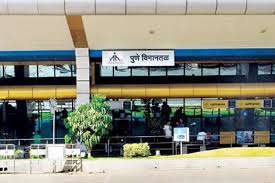Bengaluru, May 3: Undergraduate and postgraduate students skipping online classes held by their universities run the risk of being debarred from writing their exams.
State universities, which are monitoring the attendance of online classes, are asking their affiliate colleges to send the monthly online attendance details and this would reflect in their regular attendance. This would apply to those studying professional courses like medicine and engineering.
State medical education minister Dr K Sudhakar has asked all medical colleges to regularly send attendance details to the Rajiv Gandhi University of Health Sciences (RGUHS).
RGUHS vice-chancellor Dr Sachidanand confirmed to DH that the varsity is indeed monitoring the attendance of students. “Online classes are equal to classroom teaching. (Such method of conducting classes) are necessary during the Covid-19 pandemic and the nationwide lockdown,” he said.
According to the Supreme Court directions, students should have 75% attendance to be eligible to appear for the final exams. There could be relaxations if they have health issues. If students are bunking online classes, it would reflect on their minimum attendance necessary to appear for the exams, the vice-chancellors of state-run varsities said.
Bangalore University vice-chancellor Prof K R Venugopal said most of the students are attending online classes and teachers are messaging the parents of those who are irregular. “(Of course) if they fall short of the minimum attendance, they won’t be allowed to appear for the exams,” he said.
Bengaluru North University vice-chancellor Prof T D Kemparaju said the administration has asked its teachers to record details of students attending online classes and update the university.
Mixed signals
Meanwhile, the University Grants Commission (UGC) on Wednesday issued guidelines directing all universities to treat the lockdown period as “deemed as attended” for students and research scholars. Experts pointed out that the order would prompt students not to take the online classes seriously.
“Arrangements have been made at the state varsities to make students attend online classes compulsorily and students are also serious about it. Now, because of the UGC guidelines, they may bunk classes,” said the vice-chancellor of a state-run university.
 Pune, Jan 24: A 38-year-old animation professional, who claimed that he had paced bombs at the Pune railway station, city airport and on a Mumbai-bound flight from Bhubaneshwar, was arrested on Saturday.
Pune, Jan 24: A 38-year-old animation professional, who claimed that he had paced bombs at the Pune railway station, city airport and on a Mumbai-bound flight from Bhubaneshwar, was arrested on Saturday.




Comments
HE WIL BE RELEASED SOON BEC HE IS NOT MUSLIM......
AND HE IS SUFFING FROM METALITY PROBLEM AND ALL
THIS IS INDIA......
He will be freed on bail soon confirming that he is mentally sick. lol..
i wonder if this will be on the headlines on other national channels.
There are many instances done previously by these cheddi criminals who blame others. I hope the police doesnt follow cheddis threats to release him as innocent or mentally ill.
He is mentally ill...and is not muslim...
Add new comment